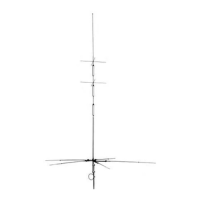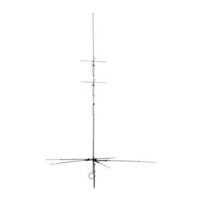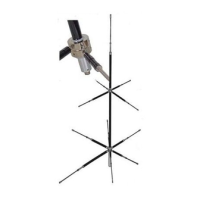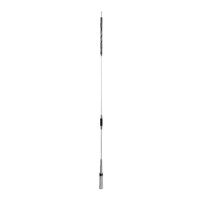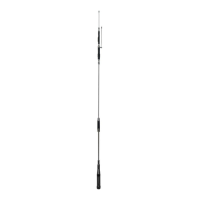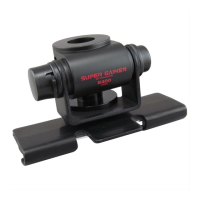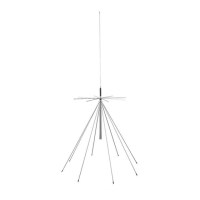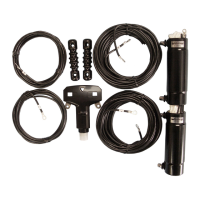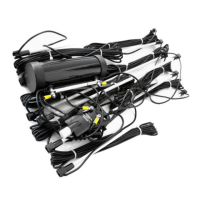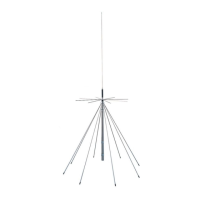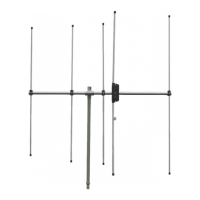Do you have a question about the Diamond Antenna CP-5HS and is the answer not in the manual?
Highlights include 5-band HF+50MHz, compact, self-supported, corner-installable, lightning protection, easy adjustment, and wind resistance.
Comprehensive list of all components included with the CP-5HS antenna, with part numbers and quantities.
Safety advice for installing the antenna, emphasizing avoiding bad weather and ensuring safety.
Guidelines for selecting the best location to maximize antenna performance and ensure safety.
Instructions to check antenna operation and VSWR before transmitting.
Warning against touching the antenna while transmitting due to risk of electric shock or burns.
Instructions to avoid touching the antenna and coaxial cable during lightning and disconnect when not in use.
Steps to take if high VSWR persists, including checking antenna proximity, assembly, and coaxial cable.
Explains how installation location affects HF antenna resonance and recommends placement away from objects.
Notes on handling radial coil assemblies and directional radial setup for optimal performance.
Guidance on performing adjustments with low power and short transmissions, and factors affecting resonance.
Provides typical lengths for radial elements and how changes affect resonant frequency.
Demonstrates how to calculate and adjust radial element length for a specific target frequency.
Details technical specifications including frequency range, impedance, power rating, wind resistance, and mast compatibility.
Overview of the CP-5HS five-band vertical antenna, highlighting its features and benefits.
List of components for the CP-5HS antenna, including part numbers and quantities, in English.
Emphasizes safety during installation, including avoiding hazardous weather and seeking assistance.
Guidance on choosing an optimal location, avoiding obstacles, and ensuring stability.
Checks required before transmitting, focusing on VSWR measurement for normal operation.
Warning against touching the antenna during transmission to prevent electric shock or burns.
Advice on handling the antenna during thunderstorms, including disconnection.
Steps to diagnose and resolve problems like poor reception or high VSWR.
Details the impact of location on HF antenna resonance and recommends clearance from obstacles.
Cautions regarding tight fastening of radial trap coil assemblies and directional radial setup.
Instructions for inserting radial elements into trap coil assemblies and securing them.
Guidance on properly setting the grip nut on the radial element trap coil assembly.
Steps for connecting the vertical element components using screws and washers.
Instructions for attaching the capacity hat assemblies to their holders.
Details on how to attach the mast support pipe to the mast using brackets.
Procedure for placing and temporarily fastening radial element holders.
Connecting the coaxial cable to the feedpoint and attaching the vertical element.
How to fix the vertical element to the feedpoint assembly using screws and washers.
Steps for attaching radial elements to radial element holders and securing them.
Step-by-step guide for adjusting the antenna's resonant frequency using a VSWR meter.
Table showing recommended radial element lengths for different bands and frequency adjustments.
An example calculation for adjusting the 40m band radial element for a target frequency.
| Impedance | 50 Ohms |
|---|---|
| Connector | SO-239 |
| Polarization | Vertical |
| Type | 5/8 Wave |
| Gain (dB/dBi) | 2.15 dBi (typical) |
| Mounting | Mast mounting |
